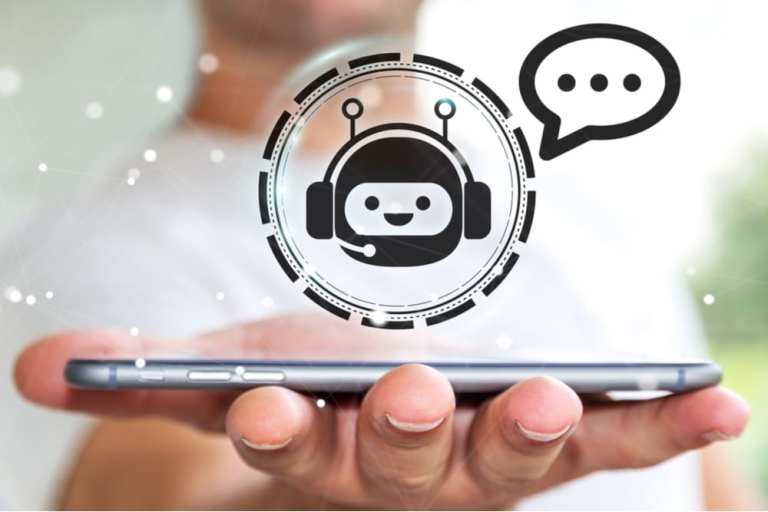Contact Centers Double Down on AI to Solve Vexing CX Challenges

Alternately mind-numbing and infuriating, call center experiences are getting a refresh, bringing a more human touch to bear even though more automation is involved than ever.
Rebranding as “contact centers” given the negative associations with “call centers,” the customer service segment is embracing artificial intelligence (AI) with all speed as major players make improvements to interactive voice recognition — and even the dreaded bots.
In March, Google introduced its Google Cloud Contact Center AI Platform (CCAI), building on its existing Contact Center AI platform with new capabilities to meet heightened expectations.
In a March 21 blog post, Google said its new CCAI extends the “ability to offer personalized customer experiences that are consistent across your brand, whether delivered through a virtual agent, a human agent, or a combination of both.”
“It eliminates many long-running pain points, from managing data fragmentation to replacing rigid customer experience flows with more engaging, personalized, and flexible support.”
Citing a list of clients using its existing Customer Service AI platform, Google quoted Ryan Nichols, senior vice president and general manager, contact center for salesforce service cloud, saying, “Customers are continually raising their service expectations, and our research tells us 79% of consumers believe the experience a company provides is as important as its products and services.”
Google CCAI is expected to be available in August.
Tech news site CIO reported that “Along with the [customer relationship management] integration, the new platform allows enterprises to manage all inbound and outbound interaction with customers with support from an AI assistant that provides suggestions based on historical CRM data and real-time interactions — essential features for modern CCaaS (Contact Center as a Service) solutions.”
Rising levels of contact center expectation formed throughout the pandemic, and a shortage of workers in 2022, is causing more companies to seek automated assistance.
It’s something that all companies offering customer support need to rethink this year.
The study “Consumer Authentication Experiences,” a PYMNTS and Pindrop collaboration, found that as 55% of consumers of all generations use both phone and online channels to conduct business, and that “70% of U.S. adults stick with the traditional telephone to connect with customer service representatives.”
Per the study, 81% of baby boomers and seniors contact customer service via telephone, while 86% of millennials and 83% of bridge millennials interact with more digital self-serve tools.
Get the study: Consumer Authentication Experiences
In other news reflecting the impact of AI contact center operations, workforce platform Observe.AI announced a $125 million Series C fundraise on April 12, backed by SoftBank Vision Fund 2 with participation from Zoom Video Communications.
According to that announcement, the platform is being used by Zoom and others to bring “full conversation visibility, business-improving insights, and machine-driven workflows” to contact centers that have spent over two years handling record numbers of inquiries.
Say “Not” to Bots
Automated chatbot are taking a reputational beating because few seem to function with intelligence — artificial or otherwise — and bad call experiences can become lost customers.
In a PYMNTS interview in February, NLX Co-Founder and CEO Andrei Papancea used travel as an ideal example of how self-serve customer service can go right, or horribly wrong.
“Let’s say the traveler calls in because they have a massive disruption with their ongoing trip and is kept on hold for two hours, whereas a myriad of other people are calling in to ask what the PCR test is,” Papancea said. “The balance and the key to solving the problem is to put practical automation in place that can solve use cases through self-service as much as possible.”
See also: Conversational AI is Talk of the Town as Call Centers Adapt to New Realities
Saying that companies are seeing revenues rise as much as 20% “by maximizing remote customer interactions, through a combination of voice and digital channels within the contact center,” communications-as-a-service (CaaS) provider Dialpad added digital channels and virtual agent capabilities to its AI Contact Center solution in March, according an announcement.
In early April, B2C conversational messaging firm Gupshup announced that it is acquiring conversational commerce innovator Active.Ai.
In that announcement, Active.Ai Co-founder and CEO Ravi Shankar said, “In the conversational economy, business -to-consumer engagement that combines advanced natural language processing with deep enterprise connectivity is essential.”
Read also: B2C Provider Gupshup Acquires Active.Ai